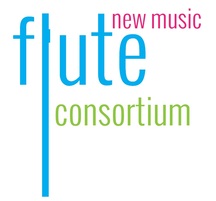Get to Know...Margareta Ferek Petric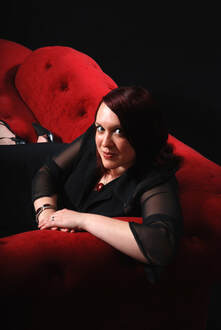 Each time I write a composer spotlight for a work in the flute and accompaniment category I’m reminded how strong the entries are each year. Over the last two days, I’ve listened to each of last year’s works and all three (Jean Ahn’s Toys, Margareta Ferek Petric’s Beastie Poetry, and Joseph Hallman’s four pieces) are really intriguing works that I would enjoy playing and I feel this way pretty much every year! Like many of our members, I’ve played many of the winning, honorable mention, and finalist works and have a list of others I want to play in the future! Flutists are spoiled by the wealth of wonderful music being composed! Today, we have the opportunity to learn more about Margareta Ferek Petric composer of Beastie Poetry for flute/piccolo and piano. Beastie Poetry was selected as a finalist in the flute and accompaniment category in 2018. If you listen to Beastie Poetry and read her response to the question “what about new music for flute appeals to you?” I think you’ll come to the same conclusion I did, that Margareta is incredibly successful in exploring the many timbres of the flute without seeming cliché. Margareta organically incorporates extended techniques in a way that is much appreciated. Margareta recently shared with us some very exciting news, she was recently chosen as the new artistic director of Music Biennale Zagreb, founded in 1961, the festival is dedicated purely to contemporary experimental music. She will be the first woman to serve as artistic director. Congratulations, Margareta on this significant accomplishment! Q&A with Margareta… What about new music for the flute appeals to you? Flute offers a bright spectrum of possibilities which I find crucial for composing - it allows one to be subtle and rough, to explore the clichés of classical beauty, but to always be able to muddy and reframe the sound into experimental abstraction. The wide range of the flute family opens a playground for various ideas and the capability of using so many extended techniques uphold these ideas in a very special way. Who is/are your favorite “new music” composer/s and why? It is impossible to point out names of personalities and pieces without needing several pages to write them all down. Besides the renowned composers from the contemporary music scene, I discover my favorite ones along the way while visiting concerts and festivals, very often those are now living composer colleagues with refreshing new ideas and strong messages that they express through their music. Describe your musical background and current activities. Growing up in Croatia got me the natural privilege to be in a strong connection with the expression of the music of the Eastern Europe and the tradition of the western classical music was very well taught both in music schools back there and also later at the University in Vienna. I suppose these two strong influences always flow through my blood while composing and almost force me to find a middle way between them, but also enable me to switch in-between these worlds. Right now, I am very excited to work on a piece for accordion and ensemble and a chamber opera, which will be a big challenge since I have never written one. Between big commissions I always try to find time to write pieces which are dedicated to musicians whose work I love and respect and who are always supporting me to write new compositions for them. I find this very personal kind of collaboration very fruitful for both sides, especially for promoting contemporary music and us - now living and working composers. Where/How do you seek for the inspiration for your works? I cannot imagine my life without being curious about other art forms, science, politics, society, etc. There is always a story in my mind I want to tell, but I have to narrate it with sound. I suppose one can feel privileged in a position as a composer to persistently be able to reveal the current mindset through creative work. So, the impulses that give inspiration can mostly be found in an everyday life - book that you just read, painting that cannot leave your head after visiting the latest exhibition, interesting line from a movie last night, absurd political situation, inspiring talk with a stranger while walking home or simply the need to discover something new in some context outside of musical expression and take on the challenge to express it though notes. More About Margareta… Margareta Ferek Petric was born 1982 in Zagreb, Croatia. She studied composition with Ivan Eröd, Chaya Czernowin and Klaus Peter Sattler at The University of Music and performing Arts in Vienna. She was granted scholarships from various institutions and foundations (Home Suisse Foundation, Thyll-Dürr Foundation, Austrian Ministry of Culture, Office of the Austrian federal Chancellor - State Scholarship for Composers, etc.). In 2010, she was invited for a working stay in Casa Zia Lina on Elba by Thyll-Dürr Foundation and in 2011 she received a Theodor Körner Award for an orchestral composition Take 7. Since 2015 she is working as a part of the managing committee of the Austrian Society for Contemporary Music (ÖGZM). In 2016 Croatia was represented by Margareta´s music on 63rd International Rostrum Of Composers. 2017 she became a prize winner of Advancement Award from the city of Vienna. In 2018 Ferek-Petric was declared Artist in Residence of the Carinthian Summer Music Festival, she was awarded with Croatian prizes: Josip Stolcer Slavenski Award and Boris Papandopulo Award (both for All the world´s a stage - as the composition of the year in Croatia) and Prix Annelie de Man 2nd Prize and an Audience Prize in Amsterdam (both for the harpsichord piece Istaratu). Few of the latest works have been recorded on albums published by Decca Records and Croatia Records. Her music is being regularly commissioned and performed by renowned ensembles and instrumentalists, diverse festivals and is being played in radio stations around the world. Margareta´s work is “colorful, ironic and deep – with a strive to create absurd sound images”. She lives and works in Vienna, Austria. Learn more on her website: www.margaretaferekpetric.com If you Liked Beastie Poetry… DUO: Beastie Poetry - for Flute/Piccolo & Piano (2018) Searching for Spaces - for Bass flute & Pno (2016) Mad darkness I - for Traverso flute & Harpsichord (2015) QUARTET Climate Burn-Out (stress trilogy: part II) - for flute/alto flute, clarinet, cello & piano (2018) Fire Walk With(out)me - for Paetzold recorder, flute, harp & harpsichord (2017) (and a second video) QUINTET Spukgedichte - for Soprano, Fl/Bass fl., Cl, Vln, Vcl, Text by Richard Schuberth (2016) Noncerto - for Renaissance/Barock Recorder (optional with flute) & String Quartet (2013) ENSEMBLE Neun Echos - for Sopr., traverso flute, baroque oboe, baroque bassoon, baroque vln, Violone/G & Organ (2018) All the world ́ s a stage for Fl, Ob, Cl, BCl, Ten.Sax., Bsn, Hn, Trpt, Tromb, Tuba, 2 Timp, Perc, Pno, Harp, Strings (1,1,1,1,1) (2017) dieMacht for Fl, Ob, Cl, BCl, Bsn, Hn, Trpt, Tromb, 2 Timp, Perc, Pno, Strings (1,1,1,1,1) (2015) Wiener Schnitzel Uncensored - for Fl/alto fl., Cl, Vln, Vla, Vcl, Pno (2014)
2 Comments
Get to Know...Jean Ahn As I assemble the composer spotlights, I make it a practice to listen to the piece for which the composer was honored and I’m almost always quickly reminded why the piece was successful in the competition. Jean Ahn’s Toys for flute, piano, and windup toy, chosen as the honorable mention in the flute and accompaniment category, is just such a work. It is such a clever work, she produces really fascinating colors, the flute and piano are really well integrated with ever changing roles, and her incorporation of standard nursery rhymes is clever, but never cloying. Toys is quickly becoming popular with our members; Shelley Martinson and Nicole Riner have already performed it, and Mary Matthews Norton will perform it on her faculty recital at Tennessee Tech on April 5th. Jean, a lecturer at UC Berkeley is also the director of Ensemble Ari, a chamber ensemble with the mission of bridging Korea and other communities through western instruments while honoring Korean history and culture. In listening to Jean’s music, I feel the same could be said of many of her compositions. She deftly melds Korean influences, western classical aesthetics, and extended techniques to create interesting and engaging works with her own individual voice. We hope you’ll enjoy learning more about Jean and her music. Q&A with Jean… Flute has so much possibility especially with breathing and lip control.What about new music for the flute appeals to you? The flute has so many possibilities; especially with breathing and lip control. Also, it was actually the performers who inspired me. When Duo Cameraderie (Laura Scarlata, flute/ Sharon Lee Kim, piano) commissioned me to write Toys for them, their musicality and dedication to new music were the inspiration. Who is/are your favorite “new music” composer/s and why? Marcos Balter, innovative but not esoteric. What is/are your favorite “new music” piece/s and why? The Ligeti Études. Although not a flute work, I think they give me inspiration for any piece I write. What advice can you give to flutists about approaching new music in practice? Don't be afraid. It is worth it. (FNMC note: We couldn’t agree more!) More About Jean… Born in Korea, Jean Ahn began to study piano and composition at a very early age. She finished her B.A. and M.M. at Seoul National University and PhD at UC Berkeley where her teachers included Edmund Campion, Cindy Cox, David Wessel, Jorge Liederman and Richard Felciano. Her creative output includes works ranging from solo instruments to full orchestra, as well as choral, dance and electroacoustic music. Awards for her compositions include 1st prize from the Renée Fisher Award, the Korean National Music Composers Award, 1st prize from the Sejong Korean Music Competition and UC Berkeley’s the De Lorenzo Prize. Jean’s music was featured at Aspen Music Festival (Susan and Ford Schumann Composition Fellow), June in Buffalo, the Madness and Music Festival (UC Davis), the Oregon Bach Festival, the Etchings Festival, SCI conferences, IAWM Beijing Congress, SEAMUS, the Spark Festival, the Fresno New Music Festival, Women Composers Conference in Australia, Women Composers Festival at Hartford, New York City Electronic Music Festival, among others. Commissions include works for the Leftcoast Chamber Ensemble, Volti Chamber Choir, Duo Camaraderie, SF Choral Artists, Gayaguem Soloist JUL, Locrian Chamber Players, and the Pianissimo, among others. Her work has been performed by Earplay, UC Davis Orchestra, Berkeley Symphony, UC Berkeley Symphony Orchestra, Ensemble Sur Plus, pianist Lisa Moore (Bang on a can), Contemporaneous Ensemble, Invoke String Quartet and others. Jean has been giving lecture recitals with Singer Raejin Lee on “Folksong Revisited” for voice and piano at College Music Society Symposiums, NATS(National Association of Singers Convention) and Symposium in New Music, Brazil. The collection with CD and score will be published in 2018, which shows her vision to introduce Korean songs and techniques to professional performers in the US. She is the director of Ensemble ARI and CMO/Advisor for Cool Jamm Company. www.jeanahn.com If You Liked Toys… Stereograph Instrumentation: flute, clarinet, violin, cello and piano Date of Composition: 2004/2018 Lapis Reprobatus Instrumentation: flute, clarinet and cello Date of Composition: 2016 Duration: 8:00 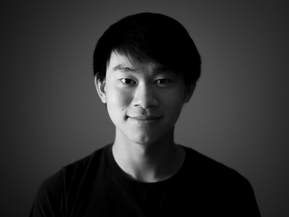 It’s so great to see the long lasting popularity of so many of the FNMC Composition Contest pieces. As we examine the calendar of performances for 2018, there are performances of works from all four years of the composition contest schedule. Viet Cuong’s work for flute and piano, Lacquer and Grit, was a finalist in our inaugural competition in 2014. We’re excited that Alan Berquist will perform it on a recital of FNMC works at the Florida Flute Association Convention on Saturday, January 27, 2018. We hope that the audience enjoys it as much as we do and other flutists will perform this lovely and colorful work! Given his incredibly adept use of harmonics in Lacquer and Grit, it wasn’t surprising to learn that Viet plays some flute. We often find that composers who have a fundamental understanding of the instrument through playing it themselves or who work in collaboration with a trusted flutist employ extended techniques in ways that are really effective. Q&A with Viet… Describe your musical background and current activities. I’m a composer who enjoys writing for all kinds of ensembles and instruments but I’m especially drawn to winds. What about new music for the flute appeals to you? I play a little bit of flute myself, and I enjoy being able to try things out, especially extended techniques, before giving them to a performer. Do you have any upcoming events that you would like our friends and followers to know about? The Kaleidoscope Chamber Orchestra is performing my percussion quartet concerto on February 10 and 11, 2018 in Los Angeles. I’d love to see any LA people there! More about Viet… Called “alluring” and “wildly inventive” by The New York Times, the music of VIET CUONG seeks to both enchant and challenge listeners by breathing new life into time-honored musical ideas. Viet’s work has been performed on six continents by ensembles such as Sō Percussion, Sandbox Percussion, the PRISM Sax Quartet, JACK String Quartet, clarinetist Gregory Oakes, flutist Mimi Stillman, the Albany Symphony, and Jacksonville Symphony in venues such as Carnegie Hall, Lincoln Center, the Kennedy Center, Cabrillo Festival of Contemporary Music, Midwest Clinic, US Navy Band International Saxophone Symposium, and International Double Reed Society Conference. Additionally, he has been featured twice on American Public Radio’s Performance Today and his wind band works have amassed over a hundred performances by college and conservatory ensembles worldwide. Viet’s prizes include the ASCAP Morton Gould Award, Suzanne and Lee Ettelson Composers Award, Theodore Presser Foundation Music Award, New York Youth Symphony First Music Commission, Cortona Prize, Dolce Suono Ensemble Young Composers Competition, Boston GuitarFest Composition Competition, and Walter Beeler Memorial Prize. He was a scholarship student at the Aspen, Bowdoin, and Lake Champlain music festivals, and has also been a fellow at the Eighth Blackbird Creative Lab, Cabrillo Festival’s Young Composer Workshop, and Copland House’s CULTIVATE workshop. Additionally, Viet is among the youngest group of composers ever to receive artist residencies from the Yaddo Artist Retreat, Copland House, Ucross Foundation, and Atlantic Center for the Arts. Viet has studied at the Curtis Institute of Music, Princeton University, and Peabody Conservatory, where his teachers have included David Ludwig, Steve Mackey, Donnacha Dennehy, Kevin Puts, and Oscar Bettison. Please visit www.vietcuongmusic.com to listen and learn more. If you liked Lacquer and Grit… Cosmetic Collection (2012-13) pieces for flute and piano 1. Bedazzler (2013) (for flute alone, 4′) 2. Lacquer and Grit (2012) (for flute and piano, 10′) 3. Veil (2013) (for piano alone, 8′) *pieces may be performed separately Nothing If Not (2015) for double woodwinds, piano, bass, & percussion, 14′ written for the American Modern Ensemble Pulse Train (2010) for flute, clarinet, violin, viola, cello, percussion, piano 7′ Thu Điếu (2017) for soprano, winds (fl, cl, bsn), harp, and string quartet, 6′ commissioned by the Vietnamese American Society for Creative Arts and Music for P.Q. Phan Windmill (2013) for flute, violin, cello, percussion, 7′ commissioned by the Cadillac Moon Ensemble Interview with Robert Denham
A CONVERSATION WITH ROBERT DENHAM
2016 Composition Competition Winner On the Departure of a Loved One for Flute and Piano Interview by Pyero Talone Transcript Below:
Pyero: Can we start by you telling us a little about yourself?
Robert: Certainly. I’m a native of the San Francisco Bay Area of California. I grew up there and probably spent 20 years of my life there. I then came down here and attended Biola University as a trumpet performance major, so that’s my background, instrumentally. While I was working on my trumpet performance degree and freelancing in the Los Angeles area, I became interested in composition and entered a few contests that were within the school. I placed in those contests and became very excited about composition, so that caused me to start thinking of going into composition as a profession. A lot of my friends were pushing me towards that, so I went ahead and explored that. I did my MA in composition at UCLA and then went on to the University of Cincinnati College Conservatory of music for my doctorate in composition. At that point, I had taught at a few universities, but then went on to teach full time at West Texas A&M for just a year, at which time I moved on to Biola University. This is my tenth-year teaching at Biola, serving as the area coordinator for theory and composition. It’s a department of about 30 composition majors, so it’s a thriving department. We’re really excited about what we have here. Pyero: I really loved On the Departure of a Loved One and I know that it comes from a concerto you wrote, right? Can you tell us about your inspirations behind it and your compositional process? Robert: Certainly. Well, the background of the piece – I was asked by a friend of mine, Brian Bensing, who was the person I dedicated this to. He asked me to write this concerto so he could play it with the Cambrian Symphony. He’s part of that symphony up in San José. And I was short on time but had to produce something for a particular concert, so I thought, why not kill two birds with one stone: I’ll write the middle movement of the concerto and go ahead and write it just for piano and flute. Because it was the second movement, it didn’t take me so much time to write. The faster movements, because they have more notes, take a longer time to write and format. So that’s why I started with the second movement. I love the second movements of the Barber Concertos. Samuel Barber wrote several concertos: a piano concerto, a cello concerto, a violin concerto. That middle movement right there seems to be an opportunity for him to express things that are more intimate and more close to his heart: sorrow, grief- things that are more personal, I think. Because, of course, the first movement of a concerto is bringing the audience in, it’s not bringing up anything terribly controversial or terribly emotional. But that inner movement, framed as it is against the outer movements, is an opportunity to do that. So I think that all of us have at some point in our lives, if we’ve lived long enough, lost loved ones. And for me, my father died about six years ago. At the time that I wrote this, it was more like four years, so that was kind of a thought that was lingering as I was processing. Pyero: So going back to you as a composer, who has most inspired you as a composer? Robert: Well, I would say that if I was stuck on a desert island and had one composer to listen to, and only one, I’d have to say that would be JS Bach. But I wouldn’t say he’s my favorite composer. My favorite composer is Benjamin Britten. I really love his opera Peter Grimes, Billy Budd, and so forth, the work that he’s done with the voice. He worked with Peter Pears on things like serenade and nocturnes. I just really love that style. I feel as though his music speaks on a variety of levels. People who don’t have a lot of experience with new music, they can appreciate his music, but also people who do have a lot of experience listening to new music because there are a lot of interesting textures, there’s depth, there’s a profound nature to what he does that makes it intriguing even to a doctoral theorist, if you will. If they dig, they’ll find some interest there. So that’s very inspiring to me. I wouldn’t count him on my desert island because I’d be afraid of getting bored of listening to the same composer over and over again. If I had to do that, it would be Bach. But the person who’s music I admire the most, I think it would have to be him. Of course there are others: Stravinsky is a favorite; I really admire the music of Ravel – I think his music is phenomenal. More recently, I’m attracted to the minimalist school with John Adams and so forth. I think that he’s got quite a bit of color in his music. I also think that, as a minimalist (or post minimalist), his music has evolved so much more over his lifetime than some of the other minimalist composers. Philip Glass, for example, has stayed relatively close to where he was, whereas John Adams as morphed throughout his career. Pyero: So since you’ve mentioned Bach, could you tell us about SDG? Robert: JS Bach would often times put that at the bottom of his music and it stood for Soli Deo Gloria: to God alone be the glory. Bach was very spiritual. He was very mindful of the fact that God had given him his talents. Bach was not great just because he was great. These gifts had been given to him. I think he was trying to draw more attention to God than to Bach, himself, the person. And so I put that down on the bottom of my music, not to slap anyone in the face with it, but to remind myself as much as anything that this is not mine, this is something that I believe that the Lord has given. It’s not something for me to hold in anybody’s face and say “look what I did” because, honestly, as a composer, when you’re looking at a blank piece of staff paper and there’s nothing on it, there’s a feeling of terror that fills your heart and you say, “I’m not sure what I’m going to write.” And I know I have to write something. When people ask me how I compose, my honest answer is that I’m not really sure. I’m not really sure how those notes get on there. I always start my composition process with prayer. Different people have their different methods, I understand, but that’s just my way of dedicating it to God. Pyero: What do you like and what do you find challenging about writing for flute? Robert: Well, in terms of flute music, I’ve written several pieces that either feature the flute as a solo instrument or heavily involve the flute. Cindy with Pacific Symphony (I worked with the Pacific Symphony on a project) encouraged me – she said “hey, you write really well for the flute, you should write a concerto,” so partially, this concerto comes out of that, and her encouragement, as well. I’ve found that if I try to write something that I think a flute or flutist cannot play, that they always prove me wrong. It’s almost as though flutists can play anything. Now, I know that, of course, there’s a limit to how many notes you can fit within a certain beat, and yet, it’s such an acrobatic instrument that, if you know how to notate septuplets and nonuplets and things like that, (like, once again, Ravel did so well), if you are able to notate that, you can really express yourself with a lot of decoration. The ornaments you can achieve, the frills that you can put on the music, it’s just wonderful to be able to dance like that. I think, of course, that in certain parts of the register, you really have to watch for the balance and be careful of the other instruments involved, particularly with a full orchestra – not overpowering the instrument. That’s something that the flute concerto for orchestra has been performed just once, and that’s something that I’m watching for in each subsequent performance. Watching the balance and, is it the orchestra that needs to fix things, or is it me, the composer that needs to fix things – to thin it out a little bit, or it could possibly be both. Pyero: Can you tell us about other pieces you’ve written for flute? Robert: One of the first mature works that I wrote was for solo flute and it’s called Two Soliloquies and it’s two monologues, if you will, for solo flute. The flute concerto is in three movements, and that’s available in piano reduction, the entire things is. Then other pieces that involved the flute include an oratorio called Under the Shadow and it features the flute and piccolo quite a bit- there are a lot of decorative patterns that are floating around on top of it. Then a lot of chamber pieces and a lot of wind ensemble pieces, and of course the flute plays an important part there, but as far as solo, just the Two Soliloquies for solo flute and then this concerto are the only pieces that feature the flute for the entire time. Oh, and there’s actually a piece for alto flute called the Lament of Aeneas. And that’s got an interesting story behind it because of course everyone’s heard of Purcell’s Didot and Aeneas and Didot’s Lament. This is kind of Aeneas’ response to that – he gets to have a lament as well. But this is for alto flute and is available for piano and alto flute or orchestra and alto flute. Pyero: So can you tell us your website and other ways to contact you? Robert: Sure, my website is robertdenham.com and the best way to get in contact with me is email. That’s on the website as well, but it’s [email protected]. Lament of Aeneas is published by Falls House Press, for both the piano reduction version and the orchestra version. I’ve published the flute concerto through my own company, and that’s Hog Island Press. So if anyone’s interested in getting copies of that, both the piano reduction and full orchestra, they should contact me directly. Get to Know...Till MacIvor Meyn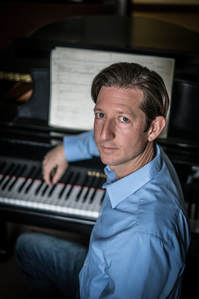 The flute and accompaniment category has traditionally been a category in which there are tons of really strong pieces and 2017 was no exception. We often find ourselves interested in performing all of the finalists works! Forces of Nature for flute and piano was a finalist work in this year’s flute and accompaniment category. Today, we’re featuring the composer, Till MacIvor Meyn! We were pleased to see that Till has more flute pieces available for us to play! Members with flute ensembles will be pleased to see he has three works for flute ensemble (a quartet and two flute choir pieces). There are recordings of Urban Ragas and Preludio Y Tango easily accessible on YouTube. His newest work, Nordic Spirits, which was premiered at NFA this summer is not recorded at this time, but we’re sure it will be recorded and posted soon! He also has a beautiful and accessible solo flute work Big Kahuna, there is a recording available on SoundCloud. We encourage you to check them out! Q&A with Till… What about new music for the flute appeals to you? New music for flute, as with new music in other genres, is really taking off today. By that, I mean that there are so many composers and new pieces out there now than there were a generation ago. Finding new music can be a very rewarding experience: You'll come across compositions that can touch you in a personal way, either through their lyrical qualities, their virtuosic elements, or combinations of those and other aspects. Happy hunting! Who is/are your favorite “new music” composer/s and why? I have many favorite living composers, and a varied musical palette of tastes. I find the music of Eric Ewazen to exhibit well-constructed melodies contained within classical-style forms that help us, as listeners, keep it all together. Frank Ticheli and Jennifer Higdon, though very different in style, are able to create dissonant, virtuosic passages that reside within tonal frameworks, and both composers write beautiful lyricism as well. Magnus Lindberg crafts monumental works with lots of jagged edges, but his music is goal-oriented, and so we have something to keep hanging onto. Describe your musical background and current activities. My own musical background is that of a singer, but as a composer and theory professor, I use the piano quite a bit as well. I grew up listening to classical music that my parents played in the home, and as I became a teen in the 1980s, I had a voracious appetite for rock and pop music. I was introduced to jazz through my choir in high school, especially the arrangements of standard tunes performed and recorded by the Manhatten Transfer. I believe that my exposure to all of these disparate genres made me the composer I am today, which is quite an eclectic mix of primarily tonal materials. What advice can you give to flutists about approaching new music in practice? My advice to flutists when approaching new music is to have an open mind. You never know what the next big thing out there will be (a composer, a style, a certain sound), and so it could be very rewarding to stretch your comfort zone a bit and work on something that you might otherwise not have tried. I also feel that communication between the composer and performer(s) is a very beneficial aspect of understanding the music; I enjoy Skyping with ensembles to work with them in rehearsal, which helps to bring the music to life--it's really fun for me and for the musicians! Do you have any upcoming events that you would like our friends and followers to know about? I have a new flute choir piece called Nordic Spirits which was recently premiered at the NFA Convention; my flute sonata (flute and piano) is called Force of Nature, and features a very modern sound with virtuosic and lyrical passages; I have a flute quartet called Urban Ragas which flute players tell me they enjoy, and I have a short tango called Preludio Y Tango for flute choir that really spices things up! I'm happy to hear from you about any of these pieces that you'd like to play. More About Till… Till MacIvor Meyn is Professor of Theory and Composition at Texas Christian University. He earned degrees from U.C. San Diego, Indiana University, and USC’s Thornton School of Music. Till’s music has had international performances in France, Italy, Cuba, China, Spain, Ukraine, and Slovenia. Performances of his music in the United States include those at Carnegie Hall (Weill Recital Hall); Clarinet Fest in Oklahoma City, MO and in Lincoln, NE; the Biennial Saxophone Congress in South Carolina; the Florida State University Festival of New Music; the SCI/CMS National Convention in San Antonio; the National Flute Association Conventions in Chicago, Washington, D.C., San Diego, and Pittsburgh; at the Manhattan School of Music; and at the Intercollegiate Men’s Choruses National Seminar at Harvard. Till was recently commissioned to compose a work for the Fort Worth Symphony Orchestra’s Kinderconcerts Series; he was a finalist in the Areon Flutes Commissioning Project for 2016; he was a featured composer at the 2015 Cliburn at the Modern series; he was a finalist in the NFA Newly Published Music Competition for ‘Urban Ragas’ (2013); and he earned first prize in the NACUSA Texas 2011 Composition Contest for Celestial Mechanics. Till’s music is published by Alliance Music Publications, GIA Publications, ECS Publishing, C. Alan Publications, and Alry Publications. He is a member of the Fort Worth Symphony Orchestra Board since 2015. For further information about Till’s music, please visit tillmeyn.squarespace.com or on Facebook: Composer Till MacIvor Meyn. If you liked Force of Nature… Nordic Spirits—9’15” 2 piccolos, 4 flutes, 2 altos, 2 basses The piece features various folk-like melodies reminiscent of Scandinavian tunes, with counterpoint and some effects. Self-published—please contact the composer at [email protected] Urban Ragas—7’45” 3 flutes, 1 alto (or bass) The work uses modal melodies that were inspired by North Indian ragas, woven contrapuntally. Published by ALRY Publications Force of Nature—14’00” Flute and piano This three-movement flute sonata has virtuosic melodies, as well as lyricism. The piano accompaniment is also very active. Self-published—please contact the composer at [email protected] Preludio Y Tango—4’00” 1 piccolo, 7 flutes, 1 alto, 1 bass This two-movement piece features a short off-kilter prelude, and then a romping tango movement. Published by ALRY Publications Big Kahuna--5’45” Solo flute The composition is reminiscent of Debussy in its use of scales; it tells the story of a wave-rider in high surf. Published by ALRY Publications Learn More About...Paul Richards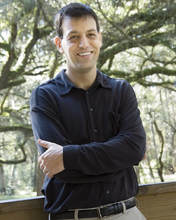 We’re always gratified that composers enter our contest more than once. We hope it is a sign that they have a positive experience. Five composers who were finalists in our inaugural 2014 competition have found success in multiple competitions. Nicole Chamberlain, Joao Pedro Oliveira, and Greg Steinke were all finalists in multiple years. This year, two former finalists joined that club, not only repeating as finalists, but their works won their respective categories! We’ll feature Cherise Leiter and Paul Richards in video interviews soon, as we do with all winners, but we wanted to make sure we featured this year’s winners quickly, so we’ve also invited them to be featured in a Composer Spotlight Interview! Below is Paul Richards’ prior Composer Spotlight. Paul was a finalist in 2014 for his piece for flute alone, Tomorrow in Australia. Tomorrow in Australia is one of our most frequently performed finalist works. FNMC members have played it at the Florida Flute Association Convention, Kentucky Flute Society Flute Festival, and the Mid-Atlantic Flute Association Convention. We’re quite certain that Entanglements for flute and piano, the winning work in this year’s flute and accompaniment category will be very popular with our members and we look forward to sharing information about performances soon! You may have heard Entanglements at this summer’s NFA Convention. Paul’s colleague at the University of Florida, Kristen Smith Stoner, has always been a loyal champion of his works and she performed it at the 2016 NFA Convention. In addition to composing Entanglements since he was last featured, Paul has just completed a new work for Pierrot ensemble entitled Ouroboros. It will be premiered in February 2018! We look forward to hearing it! Repost-Paul Richards Composer Spotlight 5/2017 We’re so lucky that so many of the composers who have been honored in the FNMC Composition Contest have taken the time to participate in the Spotlight Series. allowing our members and followers to learn more about them and their music. Today, we’re excited to share our interview with Paul Richards. The solo flute works have been particularly popular with our members and one of the most performed is Paul Richards’ Tomorrow in Australia. FNMC members have performed Tomorrow in Australia at the Florida Flute Fair, Florida State University, the Kentucky Flute Fair, and the Mid-Atlantic Flute Convention. We were not surprised to learn that Paul is particularly interested in color and timbre as Tomorrow in Australia explores the different ranges of the flute and deftly incorporates extended techniques. Q&A with Paul… Who are your favorite "new music" composers and why? So much incredible music is being made every day, and I'm pulled by so much of it. If asked tomorrow, my answer would surely change. Today: I love Andrew Norman's constant inventiveness and his playful spirit - every piece is a fantastic roller-coaster ride. I love what John Hollenbeck is doing with jazz, particularly his big band work. John Corigliano and Chris Rouse have always loomed large for me, but so do Reich and Andriessen, and Pärt and Gorecki. Lei Liang's writing is dazzling to me, too. There's no shortage! What about new music for flute appeals to you? Color. I'm not a composer who is interested in timbre for its own sake, because I just don't think that way (though I admire composers who do), but compelling timbre is a critical part of my practice. The variety that is possible with a flute makes it a really important instrument for me, as both a featured instrument and a part of larger ensembles. And by color, I don't just mean the so-called extended techniques, but the natural variety that performers bring to a piece, based on range, dynamic indication, and other clues that I put into the score. Describe your musical background and current activities. I come from a musical family. My father is a cantor and composer, and many other members of my family are professional musicians. I started with popular music and gravitated quite early to composition, writing pretty obsessively since my late teens. Recently, I've been deeply involved with the voice, with a large book of songs for soprano and piano, and two full-length operas. I've got a third opera in progress, along with some other large pieces on the horizon. More About Paul… Paul Richards is Research Foundation Professor and Head of Composition at the University of Florida. His works have been heard throughout the United States and internationally on six continents. Awards include Special Distinction in the ASCAP Rudolph Nissim Prize, the Jacksonville Symphony Orchestra’s Fresh Ink composition prize, the New Music for Sligo/IMRO composition prize, and many others. Commissions have come from orchestras, wind ensembles, choirs, and chamber ensembles, and his works have been recorded by Richard Stoltzman, the Slovak Radio Orchestra, the Moravian Philharmonic, and numerous chamber groups. Music by Paul Richards is recorded on the Meyer Media, MMC, Capstone, Mark, Pavane, OAR, and Summit labels, and is published by Carl Fischer Music, TrevCo Music, the International Horn Society Press, Jeanné, Inc., and Margalit Music. If You Liked Tomorrow in Australia… Dem Alef-beys Instrumentation: Flute/Piccolo, Oboe, Clarinet in Bb, Bassoon, Horn in F, Trumpet in C, Trombone, 2 Percussion, Piano, 2 Violins, Viola, Cello, Double Bass Date of Composition: 2008 Duration: 9’ Diversions on a Sacred Tune Instrumentation: Flute, Clarinet, Bassoon Date of Composition: 1995 Duration: 4’30” Entanglements Instrumentation: Flute and Piano Date of Composition: 2016 Duration: 8’ Harbor Music Instrumentation: Flute, Oboe, Clarinet in Bb, Alto Saxophone, Bass Clarinet, Bassoon, Horn, Vibraphone, Marimba, Piano, Violin I, Violin II, Viola, Cello, Double Bass Date of Composition: 2016 Duration: 3’30” Kaleidophone Instrumentation: Flute/Piccolo, Bb Clarinet, Bassoon, 2 Percussion, Piano/Harpsichord, Violin, Viola, 'Cello Date of Composition: 1996 (rev. 2000) Duration: 8’30” Kante le Mesma Kantika Instrumentation: Flute/Piccolo, Oboe/English Horn, Clarinet in Bb, Bassoon, Horn in F, 2 Percussion, Piano, 2 Violins, Viola, Violoncello, Double Bass Date of Composition: 1995 Duration 12’ Songs to Survive the Summer Instrumentation: Tenor and six amplified players (Flute, Violoncello, Electric Guitar, Electric Bass Guitar, Keyboard, Drum Set Date of Composition: 1993 Duration: 35’ Get to Know...Alexandra Bryant Like most of the composers we’ve had the privilege of getting to know through their success in the FNMC Composition Contest, Alexandra Bryant is a busy lady! She was appointed Visiting Assistant Professor of Music Theory and Composition at Gustavus Adolphus College in Saint Peter, MN beginning in the 2016-2017 school year, her ballet Becoming Sugar Plum (a prequel to The Nutcracker) was premiered in 2016 to very positive reviews, and she’s currently working on two new commissions (both of which involve flute!!!). We’re happy she carved out some time to speak with us! Alexandra’s work for flute and piano, Ghost Stations, earned the honorable mention in the flute and accompaniment category of the 2015 FNMC Composition Contest. This four movement work, commissioned by flutists Douglas DeVries, depicts four different abandoned train stations; Detriot’s Michigan Central Station, Abkhazia station in the country of Georgia, New York City’s Broadway and Park Station, and the Algoma Central Railway Station in Searchmont, Ontario. Alexandra tells us about her love of multiphonics in the Q&A below and, having performed Ghost Stations in September 2016, I can attest that she uses them particularly effectively in the third movement, “The Hidden Underground,” which is composed entirely of multiphonics in the flute part! Q&A with Alexandra… Who are your favorite “new music” composers and why? I guess it really depends on where we draw the line of "new music." I love the music of Arvo Pärt, Henryk Gorecki, and Alfred Schnittke - there is something so raw and real about all three of them that nudges you right where you need it the most. I also have a fondness for how the music of John Adams often puts me in a trance. But if we get down to it, Bela Bartok and Ernest Bloch will both forever have a soft spot in my heart... Bloch, especially, is so evocative :) Describe your musical background and current activities I grew up in a very musical family - my mom was a violinist who taught privately, conducted a local youth orchestra and HS orchestra, and also performed in orchestra. My dad practiced his guitar every night and also had a few private students of his own. Although I toyed with a number of career paths, such as architecture and medicine, my love of music always won out. Most of my time now is consumed with teaching activities - lesson planning, grading papers, etc - but I love my students, so it's okay! I try to fit in composition as much as possible and am looking forward to the summer break so I can get lots of music written! I'm currently in the midst of a piece for Maundy Thursday services for baritone, flute, trumpet, and string trio and am also trying to juggle a trio for flute, soprano, and piano. (I have never had this much flute music!) What about new music for the flute appeals to you? I love the wide range of moods and characters the flute can achieve. I especially love the low, rich, and mellow register of the flute. I think the moment in Shostakovich's Symphony No. 10 with the low, low piccolo line really shifted my thinking about the flute and piccolo and how mysterious it can sound when pushed so low. I also love the stereotypical "drama" the flute can achieve as it quickly flourishes back and forth in the upper register. One of its greatest qualities, however, I believe are the eerie multiphonics. The tone is unlike any other instrument and is almost surreal in quality! More About Alexandra… Hailed as a “promising composer” by the Cleveland Plain Dealer, Alexandra T Bryant has been lauded for her “ability to convey myriad moods through clear thematic materials and coloristic contrasts.” She has received commissions from the Kronos Quartet, William Preucil, the Aeolus Quartet in collaboration with the Friends of Chamber Music of Reading with the NEA, The Cleveland Orchestra Youth Orchestra, the Santa Fe Youth Symphony Orchestra Association, the Tacoma Youth Symphony Association, The Greater Twin Cities Youth Symphonies, KINETIC, Cantare!, Katherine Murdock and Mark Hill, Duo Scordatura, and the Metropolitan Ballet Theatre & Academy. Alexandra has served on the faculty of the Luzerne Music Center as composer-in-residence and participated in the Cabrillo Festival. Dr. Bryant is a graduate of the Cleveland Institute of Music (Margaret Brouwer, Paul Schoenfield), Shepherd School of Music (Pierre Jalbert, Arthur Gottschalk), and the University of Maryland (Mark Wilson, Lawrence Moss). Additional studies include George Tsontakis and Syd Hodkinson at Aspen, the Bowdoin International Music Festival with Samuel Adler, Claude Baker, and Simone Fontanelli, Tyler White at the University of Nebraska-Lincoln Chamber Music Institute, and the Czech-American Summer Music Institute in Prague with Ladislav Kubik. Dr. Bryant has been a finalist or prizewinner in numerous composition competitions including Morton Gould, Lake George Music Festival, Garth Newel, USA International Harp Society, Flute New Music Consortium, and the Minnesota Orchestra Composer Institute. Alexandra currently lives in the greater Twin Cities with her husband, Nicholas, and their dog, Maple. She is currently Visiting Assistant Professor of Music Theory and Composition at Gustavus Adolphus College in Saint Peter, MN. For more information visit: http://www.alexandratbryant.com/index.html Listen to select recordings, including Ghost Stations visit her Soundcloud page If you liked Ghost Stations… Becoming Sugar Plum (ballet) Instrumentation: flute, violin, cello, piano, percussion Date of Composition: 2016 Duration: 85' Unraveled Instrumentation: woodwind quintet Date of Composition: 2008 (rev. 2009) Duration: 6’ Two works in progress (see Q&A) Get to Know...Nicole Chamberlain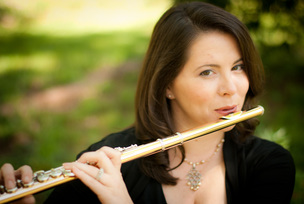 We’ve been very lucky that composers have shown a great interest in our competition and some have entered in multiple years. Several have even been finalists more than once. Among this group is Nicole Chamberlain. She was the runner-up in our inaugural competition in 2014 for her flute quartet, French Quarter. FNMC members have embraced it and performed it at the Florida Flute Fair, Kentucky Flute Fair, and Mid-Atlantic Flute Convention, among others. This year, Nicole’s work Asphyxia was voted an honorable mention in the solo flute category and Three Nine Line and Orion’s Belt were finalists in the flute and accompaniment and chamber music categories respectively. We first interviewed Nicole in 2014 when she was the runner-up and you can watch that interview on our YouTube channel, but we thought you might enjoy an update in this week’s Composer Spotlight. Q&A with Nicole… What about new music for the flute appeals to you? I love how flexible the flute can be. Once type cast as the bird, the flute has become more of a chameleon thanks to the wide use of extended techniques. Need a percussionist? Ok, use some beat boxing. Need a calliope? Multiphonics will do the trick. Wish you had a trombone? Try pitch bends. Want plucking, but no strings players? Flutes can pizz that! Who are your favorite new music composers? I have a long list, and I’ll try to narrow it down to categories. Valerie Coleman for chamber music, John Adams and Osvaldo Golijov for orchestral music, and Carlisle Floyd for opera. I’ve also been shaped by other composer’s approach to music like Jennifer Higdon’s own career journey through self publication, a life changing Joan Tower residency, and a chance encounter with Katherine Hoover about what my next step should be when composing. How can I not include my own composition teacher Dr. William Davis? What all these composers have in common is their unapologetic way of composing and running their own career. They write what they love, and run their careers the way it works for them. Describe your musical background and activities. Post graduate work wasn't for me, which means no job at a university. I've carved out a happy life as a flute teacher to many middle and high schoolers, composing for various ensembles and organizations, and catching gigs where I can. I work every week with Perimeter Flutes, and it’s the only ensemble I am currently active in. I decided this year to make some hard decisions and cut back my performance ensembles and other obligations to focus more on composing. So far, that has been a good decision. I enjoy performing, but I am being more selective. Sometimes I'll take a gig for financial reasons, or I will take it because it’s a rare opportunity. The ultimate goal, however, is to be composing more and get my stuff out beyond my immediate circle. What advice can you give to flutists about approaching new music in practice? As a composer and an active performing flutist, I’ve had experience being on both sides - sometimes both at the same time. My initial gut reaction about tackling a new piece is usually one of being overwhelmed and frustration. The first few practice sessions usually take research, communication with the composer, and patience. Once I get into the piece, I get excited about the piece. It takes time to make new friends, and that’s what a new piece of music is. So my advice is keep an open mind, try new things, and take risks. The great thing about new music is that it gets you out of your comfort zone. It’s all new, and that’s the point, but you only get better when you go beyond what you’ve performed/written before. Do you have any upcoming events you would like our friends and followers to know about? I am preparing a recital of me and my husband’s, Brian Chamberlain, music which will take place on October 29 here in Atlanta at the Eyedrum. It’s the first of a Composer Concert series hosted by Eyedrum. The concert is being called CHAMBERlain MUSIC, since all of the music is for chamber ensemble and composed by the Chamberlains. I will be performing all of the music, and some of the music will be the first time I’ve performed it, like Asphyxia. I will perform some solo works as well as pieces with Perimeter Flutes (we’ll perform French Quarter) and Two Shots Trio (a flute, clarinet, and bassoon trio). You can learn more about that event on my website: nikkinotes.com. More about Nicole… Nicole Chamberlain (b. 1977) is a composer and flutist living in Atlanta, GA. In 2010, Nicole won “Audience Favorite" at the Atlanta Opera's first 24-Hour Opera Project for her opera "Scrub-A-Dub Raw" which resulted in the Atlanta Opera's first ever commission of the children's opera, "Rabbit Tales", which received over 50 performances and kicked started her career as a composer. Nicole has also been commissioned by groups such as the Georgia Symphony Orchestra, Oklahoma Flute Society, Atlanta Flute Club, Flute Choir of Atlanta, Cuatro Puntos, Dahlia Flute Duo, Clibber the Jones Ensemble, and Hopewell Middle School Symphonic Band among others. She has had works performed at the 2013, 2015, and 2016 National Flute Association Conventions. She also won the 2013 Areon Flutes International Composition Competition, 2nd place in the 2014 Flute New Music Consortium Composition Competition, 1st place in the 2015 The Flute View's Composition Competition, and honorable mention in the 2016 Flute New Music Consortium Composition Competition Solo Category. Nicole received her Bachelor’s in Music Composition from University of Georgia where she studied with Dr. William Davis, Dr. Leonard Ball, Dr. Lewis Nielson and Dr. Roger Vogel and was selected for masterclasses with Charles Wuorinen and Joan Tower. Nicole, as a flutist, she has appeared with such groups as Georgia Symphony Orchestra, Gwinnett Ballet Orchestra, duoATL, Mercury Season, Terminus Ensemble, Chamber Cartel, Perimeter Flutes, neoPhonia, Bent Frequency, Capitol City Opera, and Orchestra Atlanta. Nicole has participated in Masterclasses with Bradley Garner, Paul Edmund-Davies and Dr. Gordon Cole. Nicole's former flute teachers have included Donna Orbavich (Hong Kong Symphony), Lisa Wienhold (Alabama Symphony), Dr. Ronald Waln (University of Georgia) and Atlanta Symphony Orchestra's principal flutist, Christina Smith. Currently she balances her time composing, teaching students, performing, and avoiding graphic design work as much as possible. Nicole lives in Doraville with her husband, guitarist and composer Brian Chamberlain. For more information visit her website: www.nikkinotes.com Nicole’s other works for flute… Nicole has 71 works for flute in various instrumentations. Learn more about them on her website: http://nikkinotes.com/CompositionsFlutes.html Get to Know...Christopher Dietz 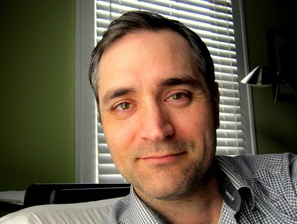 The flute and accompaniment category in 2015 was particularly strong and competitive. All three works were full of fascinating colors and, by interesting coincidence, were all highly programmatic. This week, we feature Christopher Dietz, whose work Kinderspiel for flute and piano was one of those works. I think it’s super sweet that Kinderspiel was influenced by watching his son play with the twin girls across the street! See if you can pick out the children’s song he used as a basis for the melodies in Kinderspiel in this video of a performance by his colleague at Bowling Green State University, Conor Nelson. At BGSU, Christopher is an Assistant Professor of Composition and conducts the New Music Ensemble. Q&A with Christopher… What about new music for the flute appeals to you? I am attracted to the flute's ability to take on many different colors and moods. It can be intimate, almost private, yet is also capable of unmatched brilliance and daring. In addition, more than any other wind instrument, the flute sounds like an extension of the breath. It's very human, vital. Describe your musical background and current activities. I was an average trumpet player and good singer as a kid, but did not really fall in love with music until I got a guitar in my hands early in high-school. It seemed to unlock some latent creativity and inquisitiveness that was not in any way part of my musical experience before that time. I remember trying to play along with any music I heard. Genre meant nothing to me, only notes. This obsession led to more formal study of structure and, eventually, composing my own music. I wrote my first piece, a short string quartet, when I was 18. After that experience, I never stopped composing. Do you have any upcoming events that you would like our friends and followers to know about? I have some upcoming events that reflect where my music has lead me lately: "Winter Sunset", a recent piece for soprano and a mixed ensemble of 10 players, will be performed at the 37th annual BGSU New Music Festival on October 20. On October 28, the saxophone duo, Ogni Suono, will premiere "My Manifesto and Me". It's a very theatrical piece that requires both players to speak as well as play. They even have to swear an oath in the piece, a first for me. http://www.ognisuono.com/ More About Christopher…. In recent years, compositions by Christopher Dietz have been premiered in London, Auvillar (France), Montreal, Ottawa, New York, Los Angeles, Washington, Houston and Phoenix, among others. His works have been performed by numerous contemporary ensembles including Decoda, Alarm Will Sound and The East Coast Contemporary Ensemble, as well as traditional ensembles such as L’Orchestre de la Francophonie and The Orange County Symphony. Recognition has come from participation in residencies at Copland House, Canada’s Banff Centre and The Camargo Foundation (Cassis, France) along with additional awards and honors. He is currently an assistant professor at Bowling Green State University in Ohio. www.christopher-dietz.com If you liked Kinderspiel…. Contretemps Instrumentation: fl, ob, cl, bn, hn, tpt, tbn, vib, pf, 2vn, va, vc, db Duration: 12’ Year of Composition: 2016 Le Chemin de Salut Instrumentation: Soprano, fl, cl, bn, hn, perc, 2vn, va, vc, db Duration: 32’ Year of Composition: 2008 The Phases of the Moon Instrumentation: fl, va, hp Duration: 12’ Year of Composition: 2012 Rambleodeon Instrumentation: fl, ob, cl, bcl, hn, tpt, tbn, 2perc, pf, 2vn, va, vc, db Duration: 7’ Year of Composition: 2010 Sonoromoro Instrumentation: fl, ob, cl, bn, hn, perc, 2vn, va, vc, db Duration: 10’ Year of Composition: 2009 Winter Sunset Instrumentation: Soprano, fl, cl, bcl, bsax, tba, perc, 2pf, va, vc Duration: 8’ Year of Composition: 2016 Get to Know....Xingzimin Pan  This week, we're featuring Xingziman Pan, whose work Kaidan, for flute and piano, won an honorable mention in the 2014 FNMC Composition Competition. He created such interesting colors between the flute and piano in Kaidan, including some really unique sounds created by playing directly on the strings, that I wasn't surprised that timbre is really important to Xing! Q&A with Xing Who is/are your favorite “new music” composer/s and why? Kaija Saariaho. To me, timbre is a very important element in "new music" and I found some of Saariaho's music inspired me significantly in finding new timbres. What is/are your favorite “new music” piece/s and why? One of the newest musical compositions that impresses me a lot is Unsuk Chin's opera Alice in Wonderland. I never thought this story could be told in this way, which is unexpected yet very convincing. Describe your musical background and current activities. I am now studying for my PhD in Composition at the University of Utah. Last year, I received a commission to compose a choral piece for a top Chinese university for its 110th anniversary celebration, and somehow it was pretty successful, so more choral music commissions from China came, and are still coming after that. I never expect this, but I think I am now been dragged into the choral music business. And this might be my main focus these years. I am trying to bring new timbres and new ways of musical expression into choral music, especially China's new choral music. More About Xing..... Xingzimin Pan’s music has been performed in major cities in the United States, Germany, France, Italy, Hungary, Australia and China. He is also the recipient of Awards the from 1st FNMC Composition Contest, 2nd IFCM International Composition Competition, and the 4th China-ASEAN Music Festival Composition Competition. His scores are published by Hayo Music, Baplo Music Publishing, Shanghai Conservatory of Music Press, and Schott Music. Pan received BA in Music from Central China Normal University and MM in Composition from University of Northern Iowa. He is now studying for the Ph.D degree in Composition at University of Utah, where he also works as a teaching assistant and sound engineer. As an emerging choral music composer, Pan was appointed Composer-in-Residence of Echo Chamber Singers in 2015. For more information visit his website. |
AuthorThe Flute New Music Consortium is an organization dedicated to the creation and support of new music for the flute. Archives
June 2019
Categories
All
|

 RSS Feed
RSS Feed
